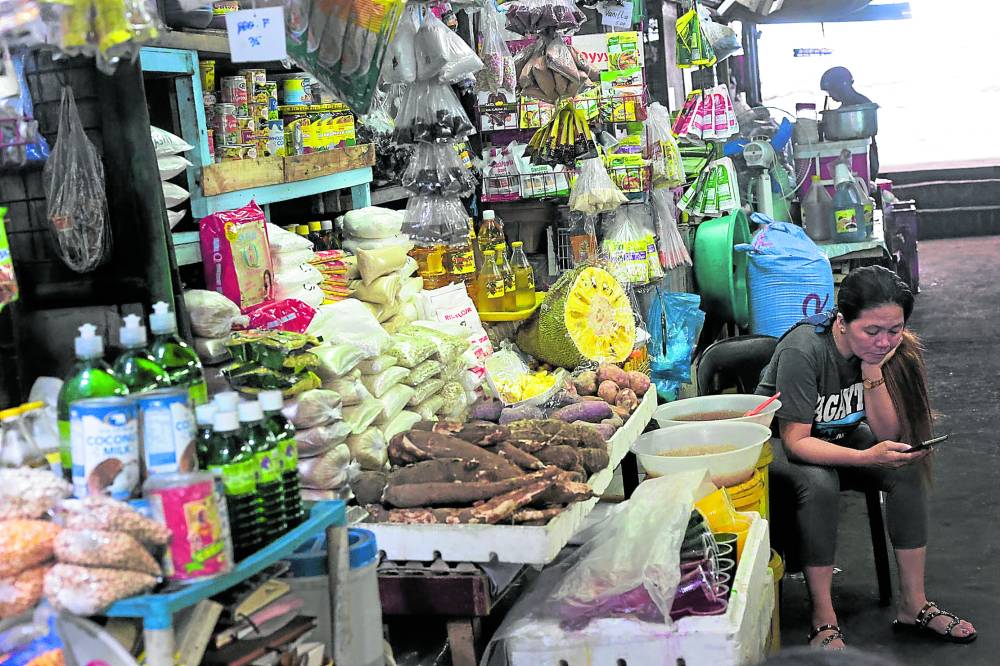
Inflation likely stayed at 3.9 percent in June as lower electricity rates could have softened the impact of more expensive food items and a weakening peso. INQUIRER FILE PHOTO / GRIG C. MONTEGRANDE
Inflation likely stayed at 3.9 percent in June as lower electricity rates could have softened the impact of more expensive food items and a weakening peso.
An Inquirer poll of 10 economists yielded an average inflation forecast of 3.9 percent in June, unchanged from the previous month’s print but still lower compared to the 5.4 percent seen in June 2023.
The median projection also settled within the 3.4 to 4.2 percent forecast of the Bangko Sentral ng Pilipinas (BSP). However, both forecasts from the Inquirer poll and the BSP showed inflation settling at the upper end and even surpassing the government’s 3 to 4 percent target range.
“We reckon it is the turn of non-food consumer price index (CPI) elements that could supply upside surprises and restrain disinflation from accelerating,” Ruben Carlo Asuncion, chief economist at Union Bank of the Philippines, said in a Viber message.
Asuncion projected inflation in housing and utilities to accelerate starting in June to 1.7 percent year-on-year, to above 3 percent in August to September.
Robert Dan Roces, chief economist at Security Bank, expects June inflation to stay within the central bank’s target but will reach the upper limit due to slower food and transport cost increases balanced by higher utility costs.
Gradual easing
“We expect inflation to remain elevated but moderate in July and August, returning to the target range by September. This forecast, based on recent economic trends and policy decisions, suggests a gradual easing of inflationary pressures,” Roces said. He projected inflation in June to place at 4 percent.
In its latest meeting, the Monetary Board kept its key rate unchanged at 6.5 percent for a sixth straight meeting, marking the highest rate in over 17 years on the back of hopes that inflation will slow down due to implementation of tariff rate reduction on rice and other agricultural products.
Despite his expectations that inflation will end up at 3.7 percent as electricity rates fall, Aris Dacanay, economist at HSBC, cautioned that the minimal increase in rice, fruits, vegetables and diesel prices is likely to offset lower price adjustments.
Dacanay also expects imported goods to be more expensive due to the weaker peso.
“With June inflation soft and the outlook pointing to even more disinflationary pressures (mostly due to a tariff rate cut in July), we believe the BSP will continue to hint at its increasing monetary policy independence from the Fed throughout the remaining months of the year,” Dacanay said.
To recall, BSP Governor Eli Remolona Jr. signaled that the BSP could start rate cuts as early as August, ahead of the US Federal Reserve, which signaled that it may cut rates by December. INQ